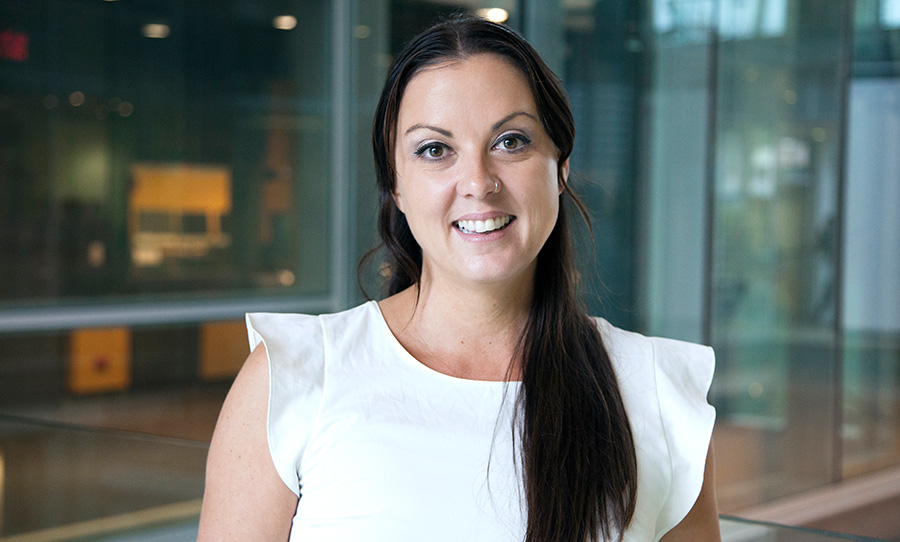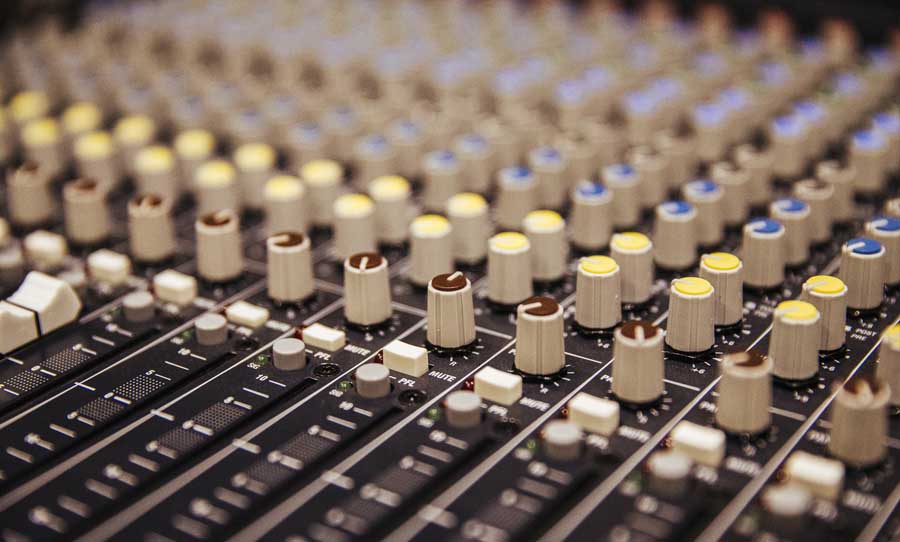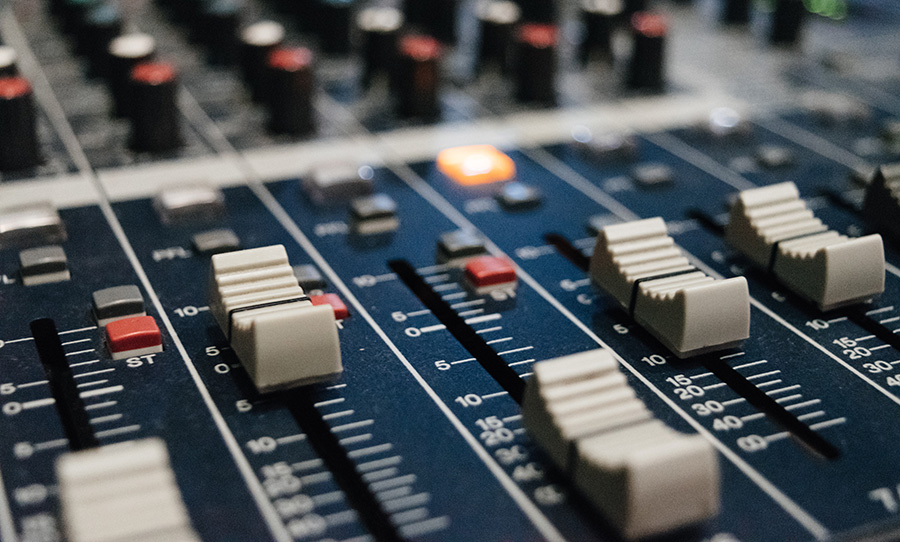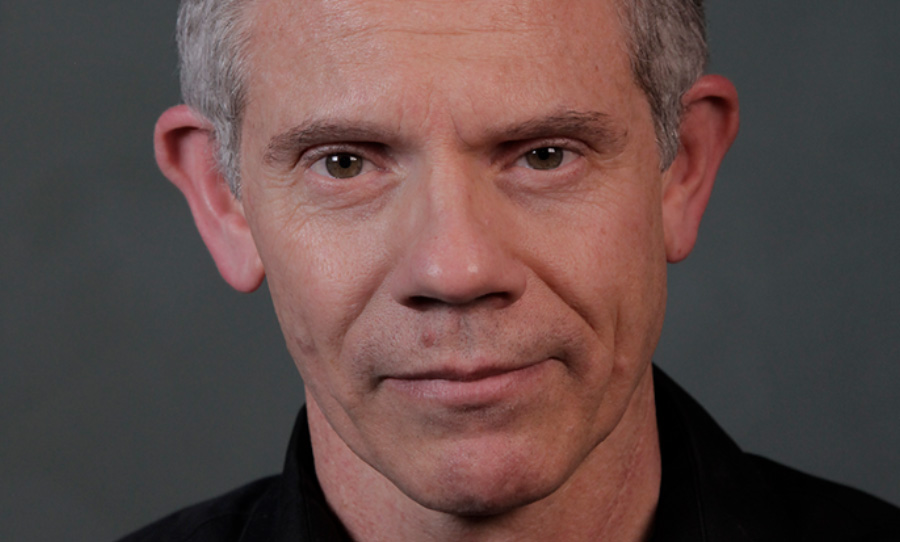Fyona Smith is a radio maestro with over 20 years of industry experience. We speak to her about the state of radio in 2020 and her role in teaching the next generation of professionals.
If you want to get into radio, you really do need a foot in the door. That foot can be a well-placed friend, a mentor, an education, or any number of other opportunities – like the music industry in general, radio relies on great teachers and ambassadors like Fyona Smith to educate, inspire, and inform those coming into the industry.
Currently serving as the Head of Radio at the Australia, Film, Television, and Radio School (AFTRS) and with multiple awards and high-profile postings dotting her 20-year career, Fyona Smith’s is the perfect brain to pick for anyone interested in making a living in radio. Read on for a few tips from a proper radio veteran – you’ll be glad you did.

HAPPY: Hey Fyona, thanks for taking the time! For those just meeting you, could you outline your role at AFTRS?
FYONA: Hey Tom, sure can! In my current role as Head of Radio, I’m responsible for the development and delivery of AFTRS Radio and Podcasting courses.
HAPPY: How have radio and podcasting courses changed while you’ve been at the school?
FYONA: The content of our courses changes each year to align with industry and the anticipated needs of the future. We are always consulting with industry and working with industry leaders to make sure what we are teaching is setting our students up for existing and future employment opportunities. This means the content of courses changes slightly each year, to hit these opportunities.
The school has a long history of producing top quality graduates who are industry ready. This is the key goal of our Graduate Diploma in Radio course and Industry Certificates. One of the best things about working at AFTRS is we are fortunate to have the latest technology and equipment for creating radio and podcast content. That is one thing that does change frequently. I’m loving binaural Zooms and RØDECaster Pro setups at the moment.
HAPPY: The pandemic has meant radio has had to shift massively – which of the current, adaptive practices do you think will stick around post-COVID, if any?
FYONA: Radio has always been very agile, resilient, and able to adapt to changing circumstances. Through the pandemic we’ve seen more people consuming radio and audio on demand content than ever before. The biggest change this year has been an increase in working remotely.
One of the benefits for radio and podcasting though, compared to other disciplines and media, is so much can be done offsite. We know opportunities in audio content creation are continuing to grow. Post-COVID it’s likely we will see a focus on generalist skills i.e. being able to write, present, create, edit, and publish audio and visual content across platforms. Plus more flexible working arrangements and off site work continuing and new roles emerging.
HAPPY: What kind of content do you think is shining through most right now?
FYONA: News content including long and short form and content for kids is certainly up due to COVID. Shows with authentic hosts with human connection content continue to do well.
There’s a growing interest and opportunities in narrative audio dramas. Investigative journalism content and informative podcasts, where you learn something are proving very popular alongside of course catch up radio and hyper localism in live, pre-recorded and social media content.
HAPPY: Some people may be looking at radio right now and thinking that it’s struggling. Do you agree?
FYONA: Radio is more relevant than ever. With a global pandemic in place and before that a horrendous bushfire season, audiences here want to know what’s happening around them and to feel connected to their community. Radio’s immediacy is hard to beat. The only medium that comes close is social media and we know how unreliable the content is through lack of regulation. The radio industry doesn’t just produce ‘radio’ anymore. On demand audio and visual content is a huge part of the sector now and will be well into the future.
HAPPY: And how about podcasting? Conversely that seems to be absolutely booming, is it a great time for independent content creators to be looking into podcasts?
FYONA: It’s great more and more people have discovered podcasts, finally! Audio is a terrific medium for storytelling. We’ve seen the production values of podcasting significantly increase and podcasting is beginning to reach a point of profitability too, particularly for those made by the radio industry.
HAPPY: What advice would you have for radio or podcast producers who are looking to launch right now? How do they push through the noise?
FYONA: Content is Queen. I know the term is usually King, but I think we have entered a new content era and the King’s had enough mentions haha. I wanted this to stand out! For Radio Producers I’d recommend adding to your professional tool kit skills in audio production, socials, and visual content creation i.e. images, graphics, video. If you think about the content you watch, what makes you want to watch it? The same applies for audio; if the content relates to you, connects with you on, engages, entertains, or informs you – you’re in. Know your audience first, who they are, and what they are into. Make your content for them first.
Production quality counts. People will watch poor quality clips on YouTube but they won’t listen to poor quality audio. It’s distressing. Building an audience takes time and consistency is key. For podcast producers, publishing episodes regularly versus launching two and expecting traction would be a good place to start. ACAST and Whooshkaa have lots of tools to help, and iTunes has lots of resources. AFTRS has plenty of courses for beginners through to pro if you want to learn or upskill.
HAPPY: For anyone who may be on the fence or considering a Graduate Diploma in Radio, what part of the course would be the factor that pushes them over the edge?
FYONA: The course is designed for those wanting to work professionally in Radio and Podcasting. You’ll learn from industry experts across all sectors, network with industry leaders and connect to a fantastic alumni network too. Imagine yourself next year…Are you going to wish you had of done it? Then apply. Full details on why this course is unique and unlike any other available here.
HAPPY: Are there any people or ideas which have come out of your course that you’re particularly proud of?
FYONA: I’m so proud of our alumni, including many who studied here long before I joined the team. One of our most recent success’ was Pariya Taherzadah, who won a Gold and Silver award this year at New York Festival’s World Radio Awards for her and he Mum’s personal story Escape from Iran. It is compelling listening and a remarkable story of her Mum escaping Iran on camelback with Pariya when she was a baby. Pariya began initial recordings for this during her studies here.
I’m also really proud of the wide range of roles our alumni go into, from our Graduate Diploma Radio course. A few examples are:
Guy Clifton SCA Hit Network Breakfast QLD, Tim Bolch SCA Hit Network Breakfast VIC, James Weir – News Limited Senior Reporter and a hilarious blogger and podcaster, Ellie Parnell, Producer/Podcast Producer, The Music Show, Radio National; Mitchell Coombs, Producer (Digital/Video) The Kyle & Jackie O Show, KIIS; Liza Harvey, ABC Producer; Grant Maling Operations, Workdays and Promotions Grant Broadcasters Muswellbrook, Zan Rowe, Double J; Ed Kirkwood, Senior Producer, SCA Hughsey and Ed national drive show; Fiona Pepper, Host of ABC’s Radio National Fictions, Award winning radio documentary maker and Alex Mitchell, Podcast One Producer, Australian Podcast Award Winner 2018, ‘Technology and Science’ for the show The Next Billion Seconds. Tim Blackwell, NOVA’S Kate Tim and Marty Show, Sarah Mcgilvray – Fitzy and Wippa Show NOVA and Kent Small (Smallzy), Smallzy’s Surgery, NOVA, Simon Marnie ABC – TV and Radio Presenter.
AFTRS are currently taking applications for their Master of Arts Screen across a number of disciplines including Music, Sound, Production Design, and more. Applications close on August 31st, check out the details here.
Find out more about Fyona’s course, the Graduate Diploma in Radio, here.



